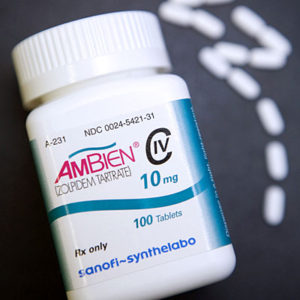DUI Defenses for Driving Under the Influence of Ambien
There is no argument that this person drove a motor vehicle. But are they liable if they didn’t know they drove?
Insanity does not negate the element of intent in a DUI, which is strict liability, what it does is prevents there being a voluntary knowing act. But Ambien can cause somnabulism ,(a parasomnia) better known as sleep-driving in cases like this. There is no manner to determine if the driver was asleep or awake in the absence of EEG during the driving.
With the use of a number of articles/research that could help this DUI Defense attorney, it can be shown that driving in this case was automatism, and that it is common when it occurs with Ambien.
If there was only Ambien (zolpidem tartrate) in the blood, (and no alcohol or ethanol), then this fact should be able to present a strong defense. Alcohol consumed consensually damages the defense, as the State prosecutor will argue the negligence of the defendant due to ethanol consumption, disregarding the medication instructions.
In cases like this, the patrol car video can be a crucial piece of evidence. Persons that are driving under the influence of Ambien and are somnabulism driving act different than those that are voluntarily driving.
My recommendations to this lawyer were to consult with an expert regarding all the details about the medical and scientific literature, and also get all evidence, including the patrol car video, to show the effects of intoxication and that it (driving) may have been involuntary in this case.
California’s Vehicle Code section 23152(e) prohibits persons from driving under the influence of any illegal or legal medication, even if prescribed for a medical condition, if it appears on California’s controlled substance list.

